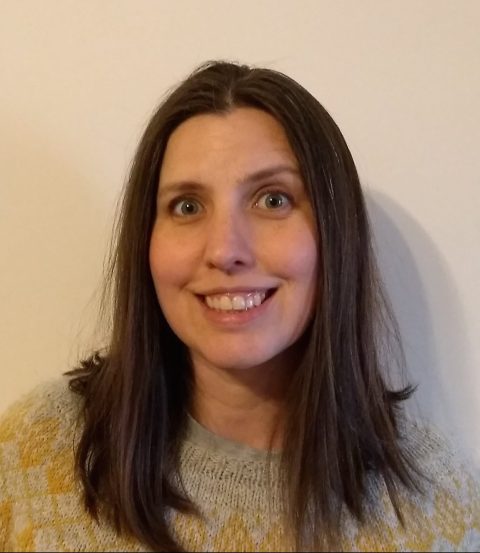The micro form often relies on what isn’t said as much as what’s said to impart meaning. This piece powerfully conveys the loss of Evan without stating the particulars of that loss. How did you determine what to explicitly say and what to hold back?
I discovered how Evan died only through free-writing the first draft, and from that point on I knew I had to tread lightly because of the subject matter. The whole experience of writing this story felt a bit delicate and strange, almost like a déjà vu. It seemed like a room I had been in before with people and items I recognized, but at the same time it felt like I was trespassing on the moment. In edits, I actually removed more than I added because I felt I had already overstepped and said too much.
I definitely didn’t want the specifics of Evan’s death to be the focus, information upon which everything in the story was measured against. But this idea that we can keep discovering more about someone after they die fascinates me. It’s terribly bittersweet, especially if they died tragically and prior knowledge would have changed how we interacted with them. There’s such a chasm between what we think we know about people and the inner struggles and insecurities they keep to themselves. How do we reconcile that when they’re gone?
This story contains a poignant list of objects—the mixtapes, the “tooth-marked stubs of pencils,” “a baseball missing stitches,” and so on—which capture Evan’s presence and absence both. Of all the items you might have included, what made you choose these?
The story and its list of items originated as a combined response to my simultaneous participation in SmokeLong’s “Going There” intensive and an inspiring prompt from Elisabeth Ingram Wallace in SmokeLong Fitness where she challenged us to write about one person’s ephemera through the lens of another character. Most of the items arose naturally in the first draft, but in subsequent edits I kept only those that might be thrown away when someone dies because they don’t appear valuable or meaningful at first glance. Perhaps it’s these throwaway objects that tell a more honest story. Some of the items came from my own children and the weird kinds of things they have had under their beds—graveyards of pencils and a random bottle cap collection—and that’s when I realized certain artifacts could show an age progression from Evan’s childhood (the baseball and the stickered stars on the ceiling) to a teenager or young adult (from pop to beer, keychains, and the condom). It was important to me that some of these items held evidence of use, proof that Evan existed—tangible, textured items that felt both intimate and universal, like the black comb and things that might show an undoing or an unraveling, some imperfection. The tooth-marked pencil stubs did a lot of heavy lifting, hinting at Evan’s anxiety. The dandruff represents his physical remains, mirroring the ash, while the mixtapes, notes, and condom allow the narrator to discover more personal information—hope, intention, and sadness all at once.
The title “Hey Lisa I Hope You Like” perfectly evokes the unfinishedness of Evan’s life. Effective titles are hard! How did you come up with this one?
Titles are so hard. In all honesty, I wasn’t sure people would get this one. I wanted something that pointed back to the story and kept turning to Evan’s handwriting, that moment of hope that was alive in him when he made those mixtapes. It’s the only artifact that’s really through his voice. Plus, there’s something about finding the handwriting of a loved one after they’re gone that feels so personal.
I tried to imagine what Evan might have written in that adolescent fashion where he’s trying to play it cool and not give too much of his feelings away. And the clipped sentence felt true, too, not only as a representation of his unfinished life, but in the unfinished sentence he’s left a space that could encompass everything he might have wanted to write: I hope you like—the music? Me?
The mourning over Evan leads to a kiss between the narrator and Sam. What are your thoughts about the link between grief and desire?
I have mixed feelings on this. Grief and desire don’t always play well together; sometimes grief is just rock-bottom awful. But from an evolutionary perspective, it makes sense to move on. To seek comfort and distraction through human touch, to take solace in that sweet hit of dopamine, oxytocin, and other feel-good hormones.
Desire is also what makes us human. We want knowledge and random ephemera, but most of all we want to feel alive, to feel connected to others, to matter, to have our lives matter. Carpe diem. In the face of a life cut short, I think we feel acutely that the only thing guaranteed is now, this moment, and we shouldn’t waste it.
On the flip side of grief is joy. This story won The SmokeLong Grand Micro Competition! How do you celebrate your joys and wins?
Winning competitions, especially this one, feels hugely affirming. And I almost didn’t enter. I was in bed with Covid, and it wasn’t until a few hours before the deadline that I managed to find enough clarity to cut forty-some words from this story and submit it to the competition. So I’m beyond elated that it connected with the judges.
I’m always initially shocked when my stories do well. Then I run around in circles like a slaughtered chicken, checking and rechecking the announcement to make sure it’s real. Once I calm down, which can take days, I have a glass of wine and sit down to think about the next story. The height of joy for me is definitely the discovery process, when I allow myself to get lost in the work.



 The core workshop of SmokeLong Fitness is all in writing, so you can take part from anywhere at anytime. We are excited about creating a supportive, consistent and structured environment for flash writers to work on their craft in a community. We are thrilled and proud to say that our workshop participants have won, placed, or been listed in every major flash competition. Community works.
The core workshop of SmokeLong Fitness is all in writing, so you can take part from anywhere at anytime. We are excited about creating a supportive, consistent and structured environment for flash writers to work on their craft in a community. We are thrilled and proud to say that our workshop participants have won, placed, or been listed in every major flash competition. Community works.